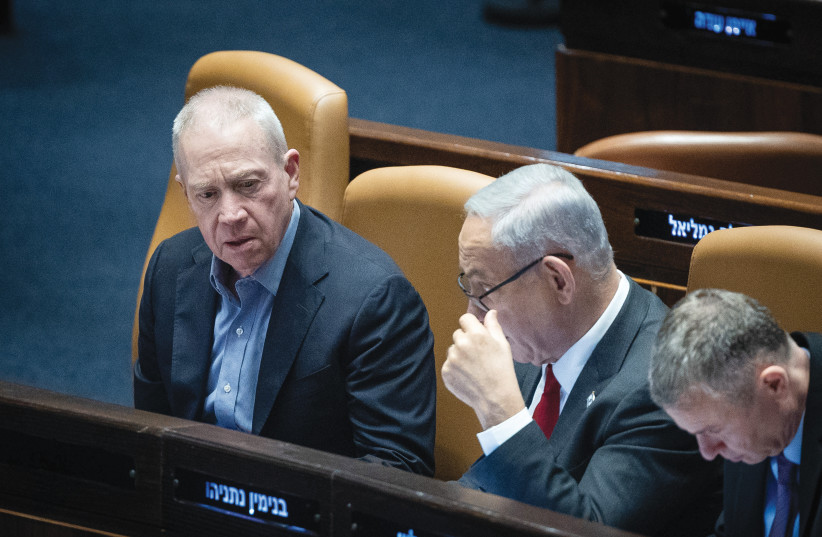High Court hearing on new law set for after summer recess
Hearings for the petitions against the judicial reform reasonableness standard law and on the Judicial Selection Committee assembly will be set in September after the court recess, the High Court of Justice ruled on Wednesday.
Despite the request by petitioners to issue an interim injunction against the reasonableness standard law, the court determined that there was no place for such an order at this time.
The legislation was added to the law book and came into effect on Wednesday.
Respondents for the reasonableness bill, which include the government, Knesset, Justice Minister Yariv Levin, and the Constitution, Law and Justice Committee, have ten days to respond once the final date is set. Levin also has ten days to respond to the Judicial Selection Committee petitions once the date is set.
A barrage of petitions was filed against the bill
A barrage of petitions was filed against the reasonableness bill on Monday and Tuesday after it had passed in a dramatic Knesset voting session on Monday.
 PRIME MINISTER Benjamin Netanyahu is flanked by Justice Minister Yariv Levin (right) and Defense Minister Yoav Gallant in the Knesset plenum, earlier this year. (credit: YONATAN SINDEL/FLASH90)
PRIME MINISTER Benjamin Netanyahu is flanked by Justice Minister Yariv Levin (right) and Defense Minister Yoav Gallant in the Knesset plenum, earlier this year. (credit: YONATAN SINDEL/FLASH90)An amendment to Basic Law: The Judiciary, the new law would restrict the use of judicial review against government, ministerial and prime ministerial administrative decisions by deeming them far beyond what a reasonable and responsible authority would undertake.
The High Court has never before struck down Basic Law legislation before, instead opting in the past to interpret or work defer to other measures like reasonableness. It is debated whether the court can actually engage in judicial review of basic laws, and there is risk of a constitutional crisis if they do so.
Dr. Eliad Shraga, head of the Movement for Quality Government in Israel, one of the petitioning groups, said that they were ready to make their case in court to strike down the reasonableness law.
“We will appear in the Supreme Court to defend Israeli democracy, and we will do everything we can to stop the coup!” Shraga said in response to the decision.
“We will continue to demonstrate and fight everywhere and on every platform until the threat is removed!”
Another matter of judicial reform is the controversy of the Judicial Selection Committee. Levin has said that he will not convene the committee to begin selecting judges until it has been reformed.
“Every additional day that the committee does not meet to elect additional judges, the burden on the courts increases and harms the citizens of the country, said MQG attorney Hidi Negev. “It seems that the Minister of Justice is abusing his authority and for his personal political considerations.”





Comments are closed.